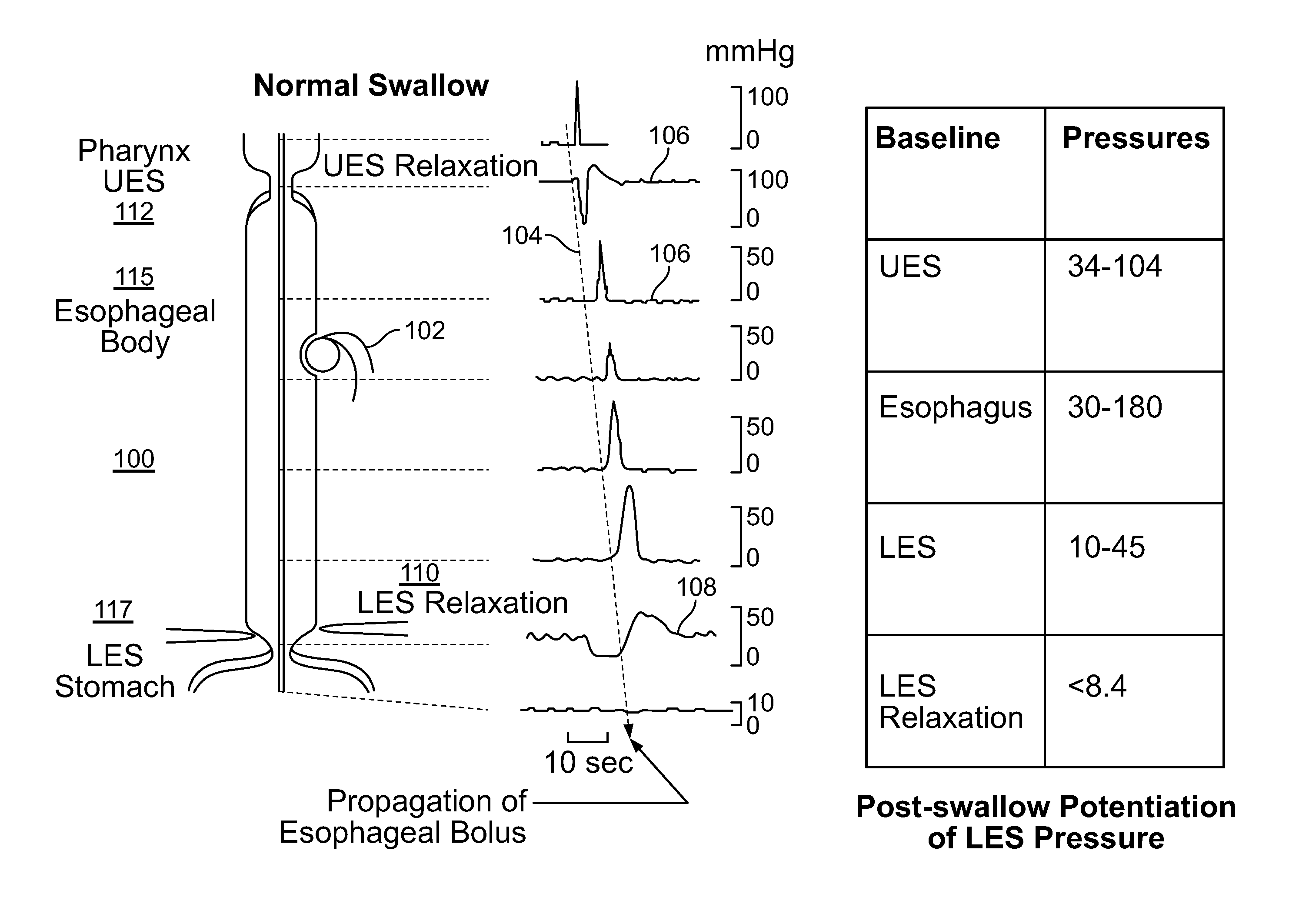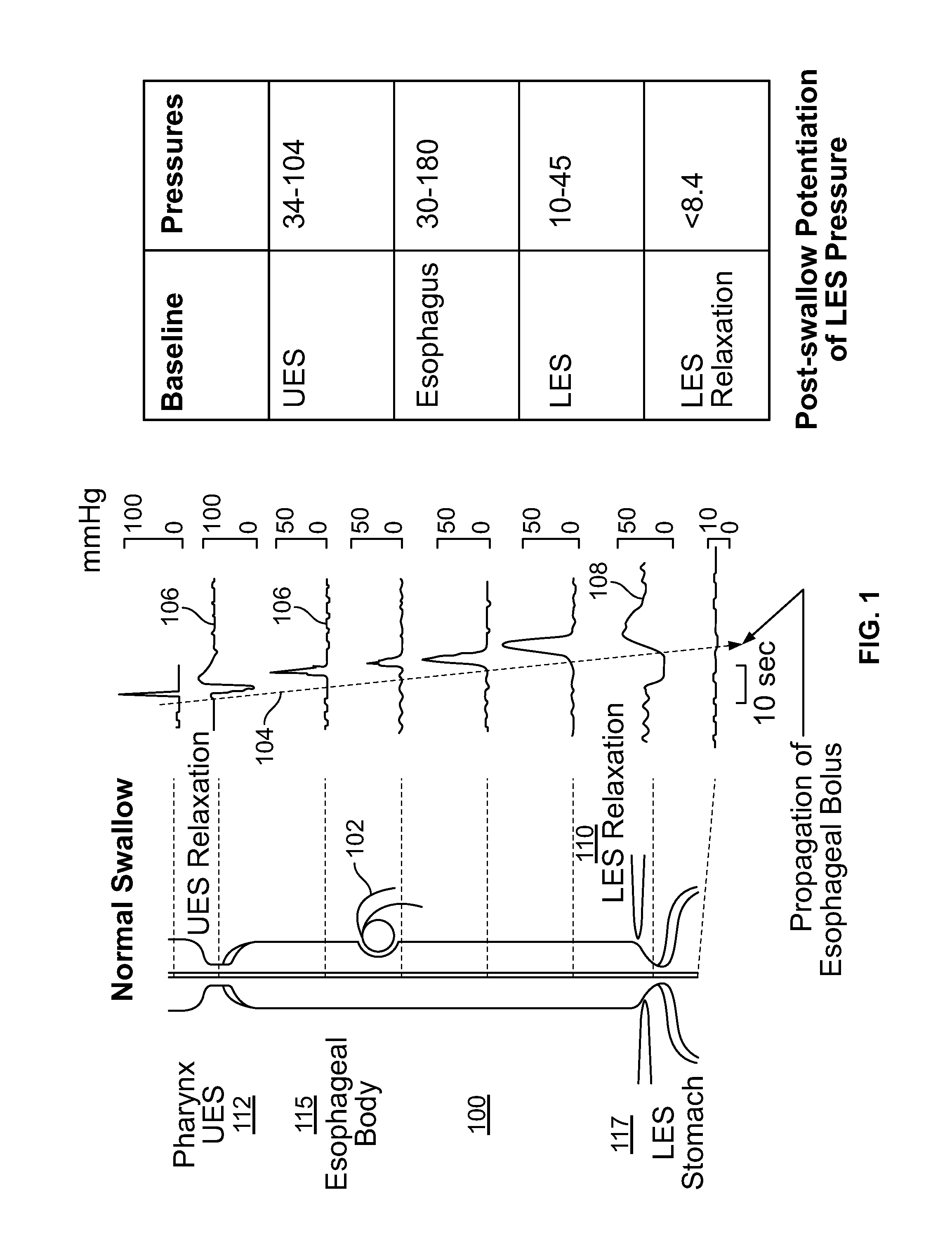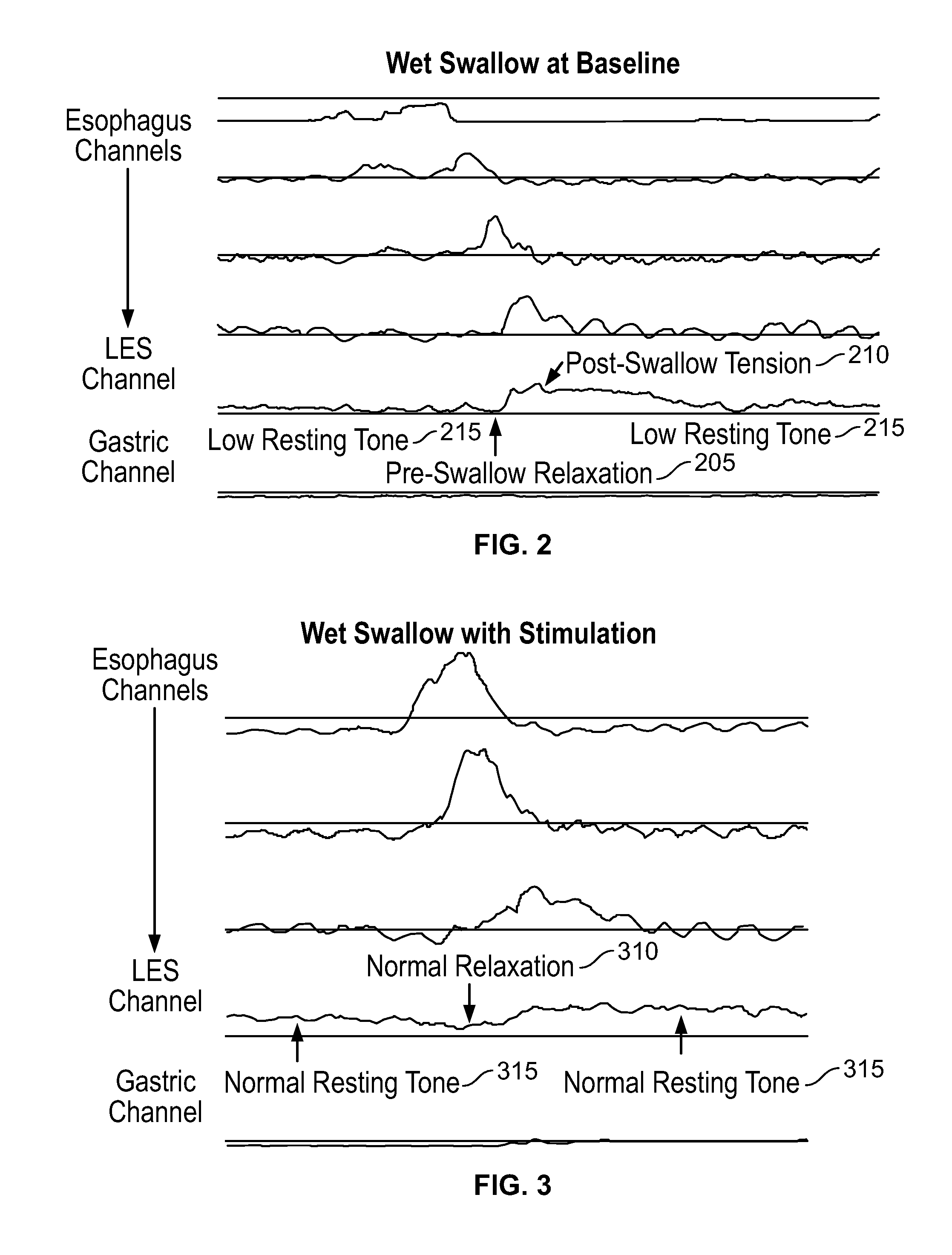Device and Implantation System for Electrical Stimulation of Biological Systems
a biological system and electrical stimulation technology, applied in the field of biological system electrical stimulation, can solve the problems of high cost, common problem of tlesr, acid reflux episode, etc., and achieve the effect of reducing the risk of stroke, and improving the quality of li
- Summary
- Abstract
- Description
- Claims
- Application Information
AI Technical Summary
Benefits of technology
Problems solved by technology
Method used
Image
Examples
Embodiment Construction
[0211]The present invention is directed toward programmable implantable electro-medical device for the treatment of transient lower esophageal sphincter relaxation (tLESR). The electro-medical device of the present invention employs stimulators, including macrostimulators or microstimulators, which can be implanted with minimal invasiveness in the gastrointestinal system. Specifically, these devices can be beneficial for deep implant locations for which there is a natural orifice access providing closer proximity than from outside the body. It should further be appreciated that the present device is capable of stimulating all smooth muscle, not limited to GI smooth muscles and that the present device can be used to deliver stimulation to the proximal stomach or area adjacent to the proximal stomach for treating various diseases that can be affected by gastric stimulation such as gastric motility problems and diabetes. The present application further incorporates by reference U.S. Pa...
PUM
 Login to View More
Login to View More Abstract
Description
Claims
Application Information
 Login to View More
Login to View More - R&D
- Intellectual Property
- Life Sciences
- Materials
- Tech Scout
- Unparalleled Data Quality
- Higher Quality Content
- 60% Fewer Hallucinations
Browse by: Latest US Patents, China's latest patents, Technical Efficacy Thesaurus, Application Domain, Technology Topic, Popular Technical Reports.
© 2025 PatSnap. All rights reserved.Legal|Privacy policy|Modern Slavery Act Transparency Statement|Sitemap|About US| Contact US: help@patsnap.com



